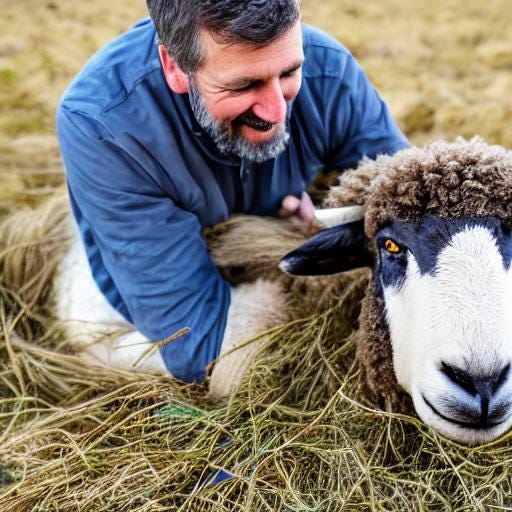March 31: John 21
Leviticus 2–3; John 21; Proverbs 18; Colossians 1
Peter is sidelined by his own guilt. So he returns to his old life, and goes fishing (John 21:3). But he catches nothing. The evil one’s plan has always been to sideline men from being useful through sin. In this respect, we must not look down on Peter here, but see in him a mirror image of ourselves.
So how does he get back in the game? In the previous note we saw a parable of the life Jesus will recommission Peter into, in v. 4-14. Now, in v. 15-19, we see the recommissioning itself.
This is a weighty, formal moment - Jesus refers to him by his birth name, not his new name, Peter: “Simon, son of John . . .” Then a question: “. . . Do you love me more than these?” The “these” could be the fish, or they could be the other disciples. After all, before he betrayed Jesus, Peter announced that while everyone else would fall way, he would die for Jesus (13:37). And then, just as Jesus said (13:38), Peter denied Jesus three times.
So it seems best to understand Jesus to be saying here, “Are you still going to stick with that proud claim? Where are you, Peter?
Peter replies, “Yes,” be he pulls up short, and only adds, “. . . You know that I love you”(15). But love is more than affection. Love is sacrificial action, gladly taken for the benefit of the one for whom one has affection.
So Jesus asks Peter, three times - one for each betrayal - if Peter loves him.1 And each time, Peter is more and more grieved. But this is only a purifying pain, as with Isaiah (Isaiah 6:6-7). Jesus aims to bring about a godly grief (2 Cor. 7:9-11), one that results in a diametrically changed life - from fishing for fish, to fishing for men.
Thus Jesus accompanies each question with a command: “Feed my lambs . . . Tend my sheep . . . Feed my sheep.”
If you love me, Simon, son of John, then you will gladly sacrifice yourself for me, for my body, the church, by feeding her my word, and tending to her diseases and threats. Even to the point of death - Jesus even tells Peter how he would die. Both Peter and Paul would be executed under Nero in the 60’s AD.
What a sales job! Peter, you’re going to be strung up and crucified - so follow me! Nothing explains what happens next - that Peter does exactly that - except
a bloody cross, where all our betrayals are washed away,
an empty tomb, where death is beaten, and
a beautiful Savior, who looks us in the eye and loves us, restores us and recommissions us, in mercy and grace.
Here is there, right now, for you. Are you sidelined by the guilt, shame and grief of sin? A whole generation of men today are emasculated by porn or distracted by the American dream. Wherever you find yourself right now, go to him. Receive forgiveness, and repent. And then you will be recommissioned, into a life more useful and adventurous than the one you could ever devise for yourself. On his own, Peter went fishing, and caught nothing. But redeemed by his Lord, he turned the world upside down (Acts 17:6).
Much is made of the differences in verbs - at one point Jesus’ verb is based on “agape”, and sometimes “phileo” - brotherly love. But John seems to think the two are interchangeable - he says in v. 17, “Peter was grieved because he said to him the third time, ‘Do you love me?’.” And there, he uses “phileo”, though Jesus had used “agape” twice. Further, it would distort Jesus’ clear point to say that there is a distinction between “lambs” (15) and “sheep” (16). It seems best to understand that this is just how people talked then, interchanging words for the same point. We do this all the time, to make our speech seem less repetitive.


